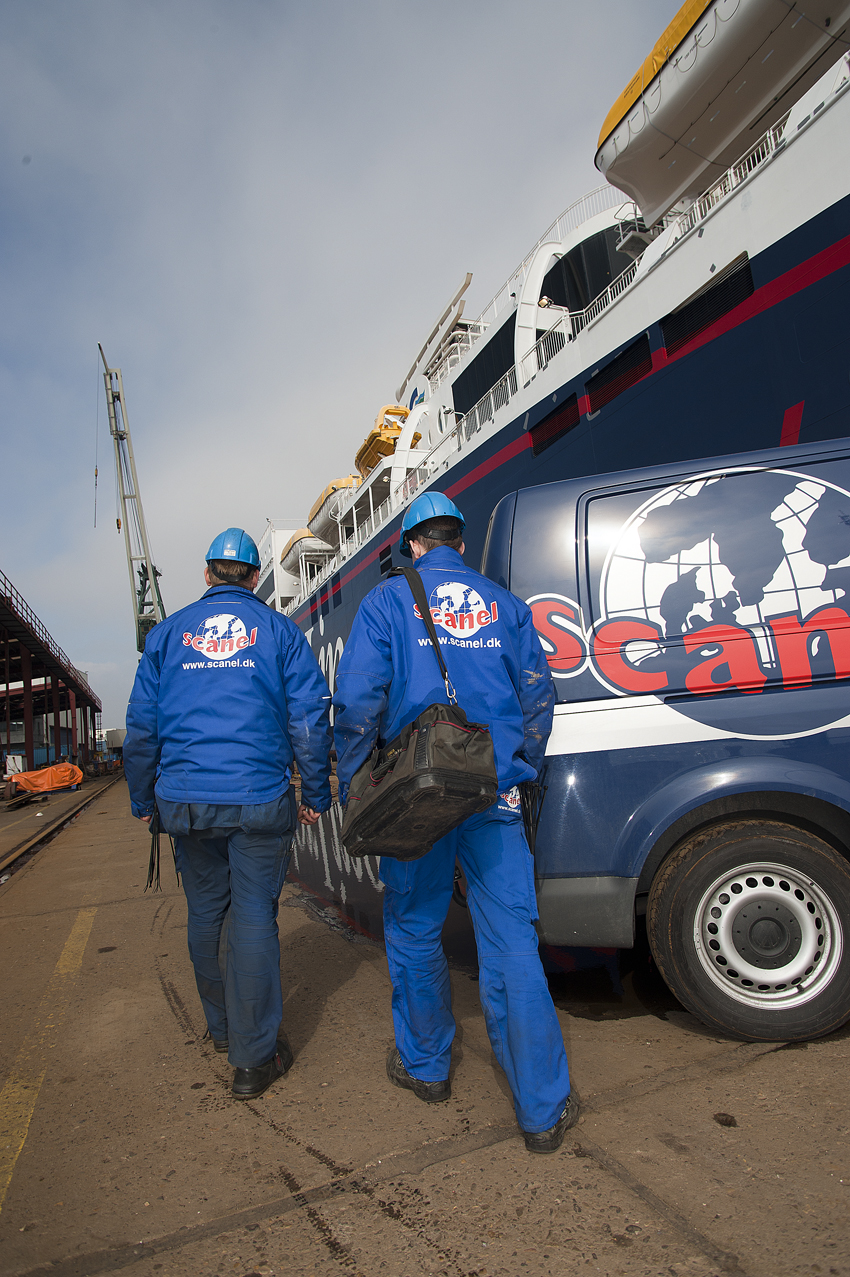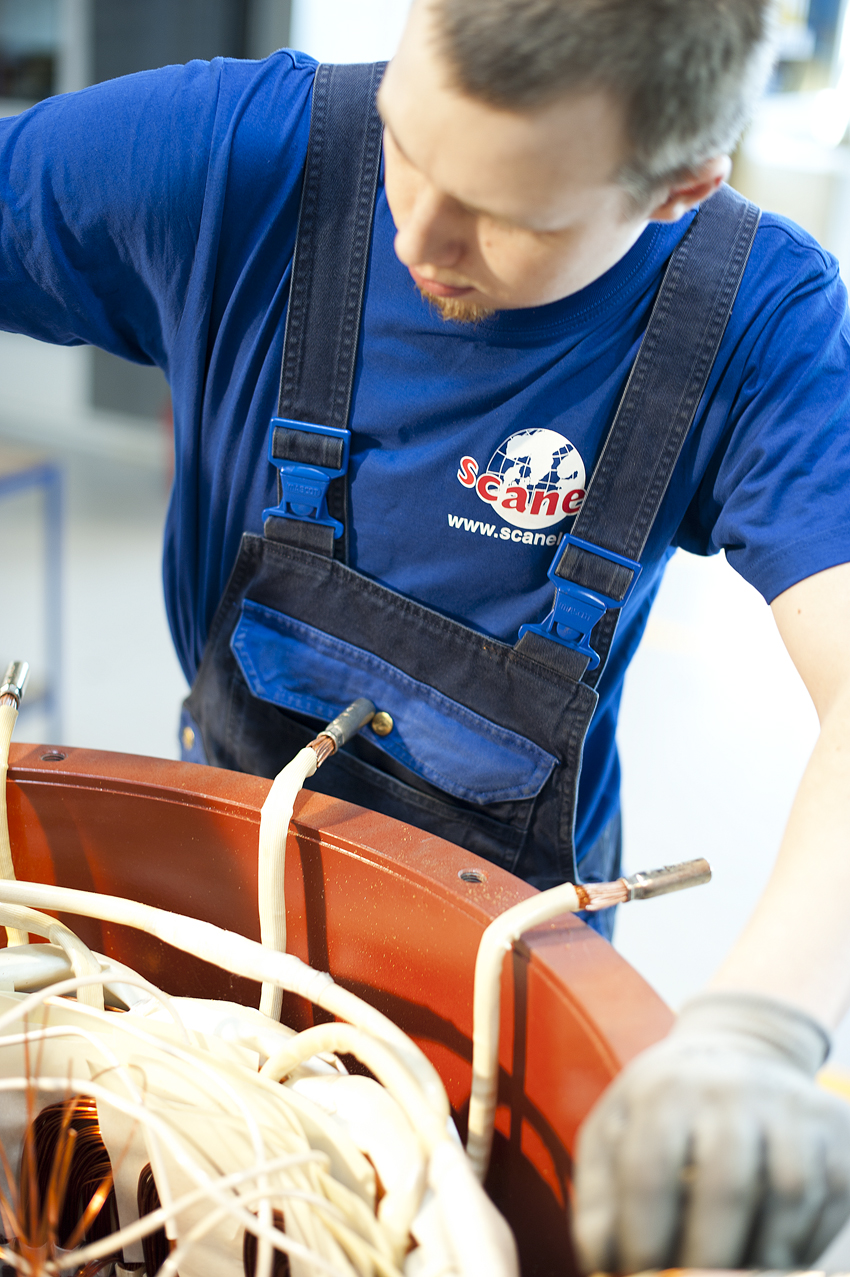
'Our sustainability strategy has become our business strategy'
Scanel International
The management team at the electrical service provider Scanel International, initially wanted a strategy for its business. Today, the two have merged.
The electrical service provider Scanel International in Frederikshavn, Denmark, has recently celebrated its 30th anniversary. With a solid customer base in the maritime industry, the company specializes in installation and maintenance of electrical systems on ships and oil rigs where it provides service “from bottom to top”, according to COO in Scanel, Jakob Tvilling Grønkjær:
“As part of the maritime industry we feel fortunate to have a strong local presence in Northern Denmark while being part of a global industry with projects around the world. That’s also why we see ourselves play a role in the ongoing transformation of the maritime industry towards sustainable solutions. It’s a development we want to be part of driving.”
Although the management team at Scanel has long had a desire to strengthen the company’s profile within sustainability, Jakob Tvilling Grønkjær admits that it has been difficult as a service company to come up with specific solutions:
“We know that many service companies face the same difficulties as we do when it comes to sustainable transformation. Our main challenge is that we install products, in this case electrical products, that others have produced, and in some cases, products that the customer has even purchased. This complicates our efforts to reduce our own climate footprint as well as our aspiration to support the overall transformation of the industry because we do not have control.”

For Jakob Tvilling Grønkjær and Scanel, the obvious solution is collaboration between companies in order to develop multidisciplinary solutions that benefit both customers and the environment:
“One of the most important conclusions we’ve reached in the UNDP SDG Accelerator programme is that we can only create a real impact if we look across the value chain in our network. Besides the environmental gains, multidisciplinary solutions also save our customers the administrative burden of checking each supplier individually. In fact, we predict that sustainable partnerships are likely to become the primary driving force of change among suppliers and manufacturers in the future.”

Common standards
Besides collaboration on solutions, Jakob Tvilling Grønkjær and Scanel are also working to establish shared industry standards:
“Generally speaking, we are probably still at a place where the majority of decisions regarding electrical solutions are made based on feelings and assumptions rather than on data and validated standards. Fortunately, there are many good initiatives underway. For example, we are currently participating in an industry network of approximately 50 companies with the goal of finding a common standard for cross-industry reporting. Ultimately, the ambition is to give our customers a real opportunity to make the right sustainable choices.”
Jakob Tvilling Grønkjær is pleased to have participated in the UNDP SDG Accelerator programme and believes the programme has given Scanel a whole new direction in terms of sustainability:
“When we initially became part of the UNDP SDG Accelerator, we were convinced that we would create one strategy for sustainability and one strategy for business, and then somehow match the two. However, we quickly realized that this approach was far too defensive and didn’t match our ambitions. If we are to find new solutions and a new direction for our organization, we need to have a single guiding star and a single strategy that guides us through the transformation.”
In addition to the long-term goals, there are also low-hanging fruits to pick, according to Jakob Tvilling Grønkjær:
“In recent years, we have been working internally with energy optimization, and we continue to work with various improvement initiatives. For example, we are phasing out our diesel fleet. We are also working to integrate sustainability goals into our ISO certifications, and for the first time we have started preparing an ESG report for Scanel. These initiatives are not necessarily revolutions, but they are still important steps towards making sustainability an integrated part of our business.”
However, a real leap forward has to come with legislation, according to Jakob Tvilling Grønkjær:
“As soon as carbon footprint documentation becomes mandatory in public and private tenders, there is no doubt that we will see a significant change across many industries. Let this be a wake-up call to the politicians because the reality is that only legislation can pave the way for the major improvements toward sustainability. And we need to get started right away. The ships that are being built now will potentially be in operation until 2050. There is no time to waste.”
Read more about Scanel International here.
SDG 9.4
Scanel International aims to upgrade industries and infrastructures for sustainability.
By 2030
Scanel International aims to contribute to the upgrade of infrastructure and retrofitting of industries to make them sustainable.
Solution
Scanel International is working to create common standards for sustainability in the electricity industry.
Furthermore...
Scanel International has an ambition to collaborate with other subcontractors in the maritime industry to offer multidisciplinary sustainable solutions to its customers.
Founded 1991
Scanel International employs approximately 160 people.
Location
Scanel International has its headquarters in Frederikshavn, Denmark, but their customer base is global.

 Locations
Locations